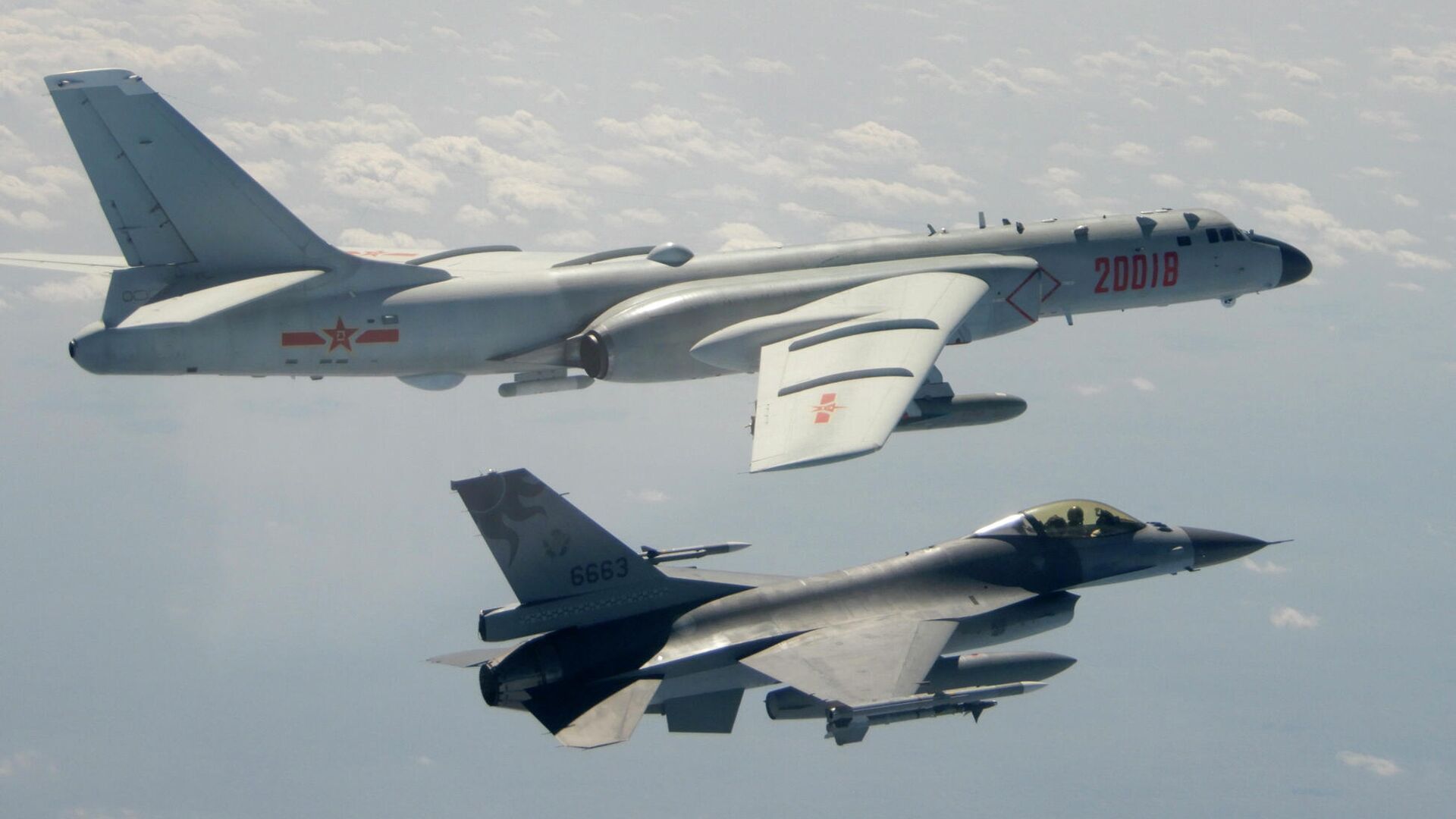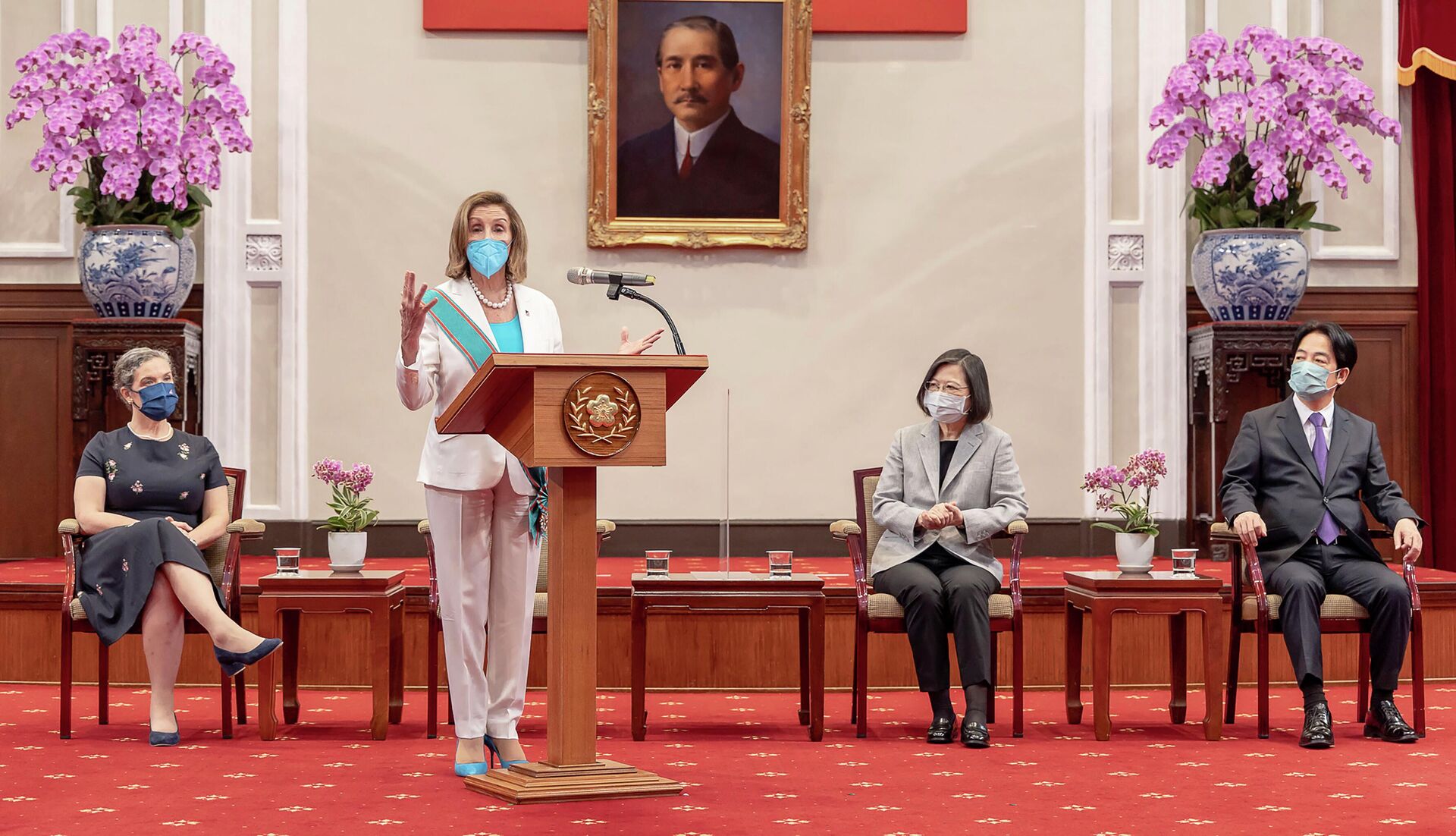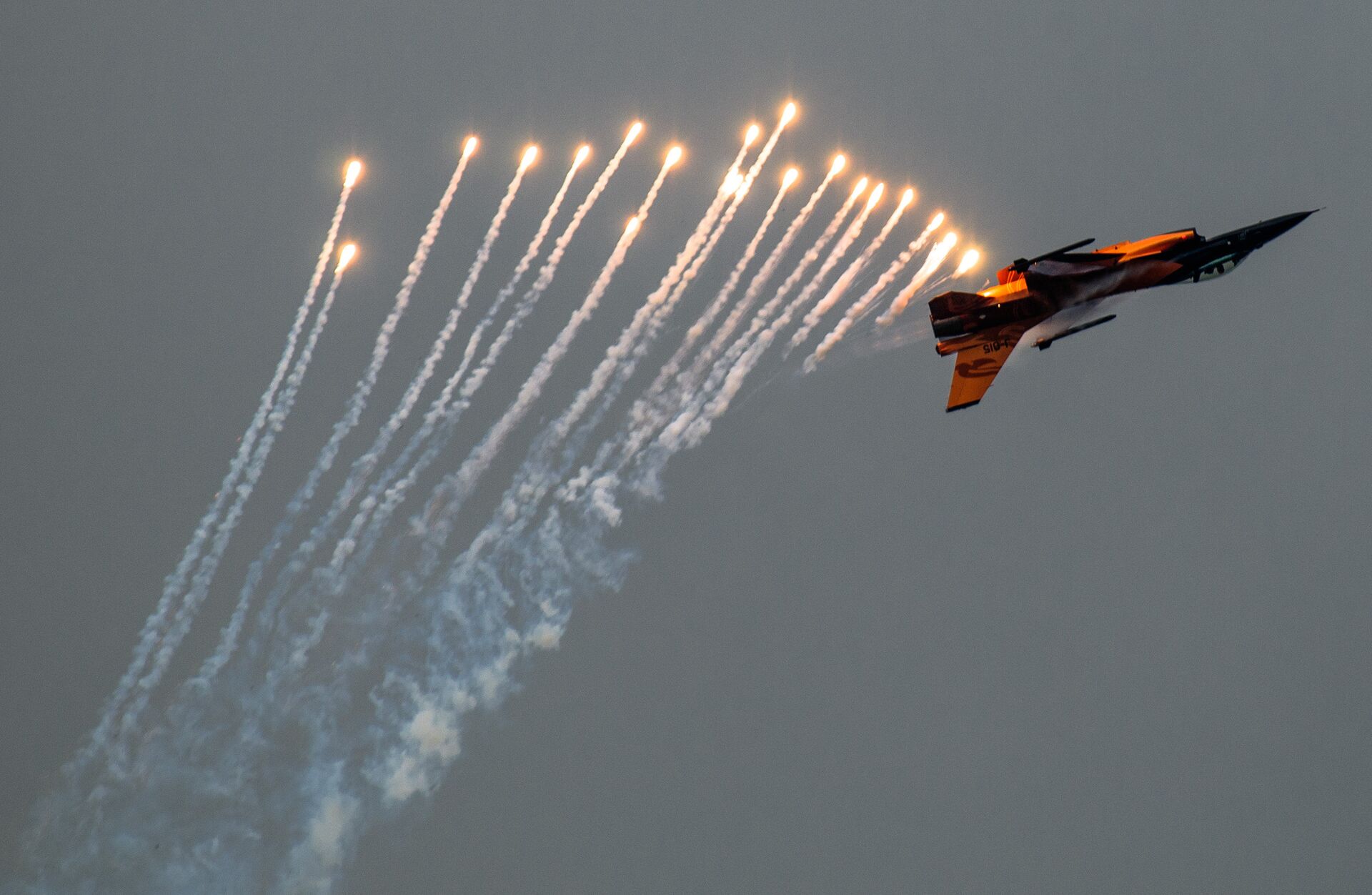US Copying Ukraine Model in Taiwan Strait by Pledging $1.1Bn in Military Aid to Taipei, Analysts Say
18:25 GMT 30.08.2022 (Updated: 12:45 GMT 19.06.2023)

© AP Photo / Republic of China (ROC) Ministry of National Defense
Subscribe
The US has funneled tens of billions in weapons to Taiwan since 1949 to help it maintain its autonomy from Beijing, even after officially acknowledging the island is part of China and severing formal relations with Taipei in 1979.
As US President Joe Biden presses Congress to approve another $1.1 billion in weapons and military support for Taiwan, experts from Taiwan and mainland China agreed that no amount of American pledges or aid can make Taiwan secure, only cross-strait peace can do that.
Thus far in his administration, Biden has sold $1.065 billion in weapons to the island, meaning the proposed deal would more than double the military aid Biden has given. The move comes weeks after House Speaker Nancy Pelosi (D-CA) visited Taiwan and met with senior leaders, despite warnings by Beijing and the Pentagon alike that it would be provocative to do so. Several other US lawmakers have followed suit, and the People’s Liberation Army (PLA) held massive war drills all around the island in response.
Biden, Pelosi, and others, including Republicans, have made statements pledging their solidarity with Taiwan and hinting that Washington would militarily defend Taiwan in the event of a Chinese government attack. However, experts from both Taiwan and mainland China were skeptical about such pledges, noting that neither the weapons sales nor a threat of US military response are able to guarantee Taiwan’s safety.
“The possibility of any US involvement in the Taiwan conflict is fundamentally circumstantial,” Dr. Chang Ching, a research fellow of the Taiwan-based Society for Strategic Studies and a lead military expert on the PLA and regional security in Taiwan, told Sputnik on Wednesday. “It all depends on whether or not Washington needs to adopt military approaches to safeguard its national interests as any specific crisis actually happens.”
“Honestly, there is no firm legal basis to guarantee US participation in any armed conflict to defend Taiwan,” Chang said. “Under such circumstances, US politicians simply try to sell certain illusive imaginations to convince people in Taiwan that the United States will definitely do something to tackle crises associated with Taiwan’s security in order to acquire diplomatic leverages and other pragmatic returns from Taipei.”

In this photo released by the Taiwan Presidential Office, U.S. House Speaker Nancy Pelosi speaks during a meeting with Taiwanese President President Tsai Ing-wen, second from right, in Taipei, Taiwan, Wednesday, Aug. 3, 2022
© AP Photo / Taiwan Presidential Office
This, he said, is why the US maintains its policy of “strategic ambiguity” with regards to Taiwan, which is opaque both to Taiwanese and Chinese eyes, maintaining a delicate status quo. If China did try to reunify the country by force, Washington would have to judge how much material loss it could afford in such a war, what it would gain by doing so, and the possibility of success against the PLA, before it would commit itself to such a consequential conflict.
This, Chang said, is why the US is “exercising a proxy war scheme in Ukraine” - to avoid finding itself in a two-front war in the event of a conflict with China.
However, he cautioned that even this was proving unpopular both in Europe and the US. “his tendency may confine the space available for the United States to exercise its political maneuver in the future,” he predicted.
“No armament can guarantee Taiwan’s security. The only approach for assuring peace and stability is to eliminate the cross-strait hostility whilst neither Taipei nor Beijing needs to give [up] its own principles,” Chang added. “It might not be necessary for Beijing to like Taipei or for Taipei to like Beijing, but both sides must learn how to live together.”
Professor Wang Yiwei, director of the institute of international affairs at Beijing’s Renmin University of China, told Sputnik, ”Actually, the US should be worried about a military confrontation, conflict, or even war with China. But the Americans will lose face after Pelosi's visit and China's very strong response, which we saw during the military drill.”
Wang noted that US foreign policy is “driven gradually by the military-industrial complex,” causing it to swing from supporting a long-term confrontation with Russia in Ukraine to conflicts in Syria, Iraq and Afghanistan, to selling weapons to Taiwan.
“That's the American excuse - to help Taiwan to defend itself,” he said. However, he pointed out that this “helps China develop its military capacity to defend our national sovereignty and interests, to make China a military superpower.”
“America has bad and even failed governance domestically, and then asks the world to pay the costs. They're playing the Taiwan card. They even want to copy the Ukraine model in the Taiwan Strait. It's not because they can't find any consensus domestically, but only to sell weapons, only to target China, or bash Russia,” he said.
“No one can stop the reunification of China, because China has been a united country for more than 2,000 years. Taiwan's separation is impossible and not acceptable,” Wang said.
“Like [then-Chinese leader] Deng Xiaoping said in the early 1980s, if Taiwan were independent, it could not feel safe, it could be colonized by Japan or the US. So if the US sells weapons and more military equipment to Taiwan, it will cause more troubles for the Taiwan Strait. There will be no peace and stability. So the only solution is to unify.”



